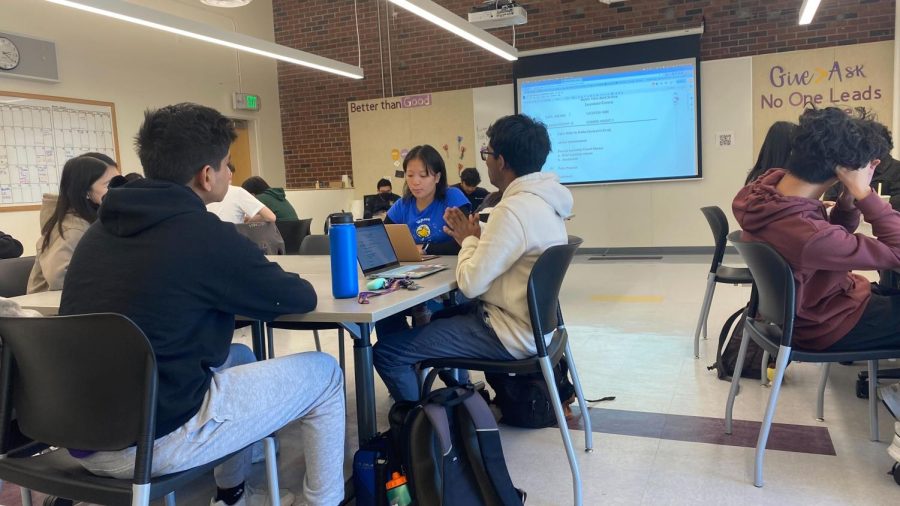Club crackdown
Examining recent developments in club behavior following Student Life Commission’s policy proposal
Leadership holds its bi-weekly meeting to vote on policy, club and leadership proposals
April 9, 2023
The Student Life Commission tackles inactive clubs by creating consequences, allowing new clubs to be created. According to junior Aya Abdelrahman, Student Life has been working towards a policy to encourage clubs to submit meeting minutes regularly after recognizing that many scheduled meetings were not occurring.
“Submitting your meeting minutes is required,” Abdelrahman said. “So we wanted to [figure] out a way [to put a stop to it] and have a consequence for those who haven’t submitted without totally disbanding them right away.”
The proposed policy would put clubs on probation when they fail to complete meeting minutes for two consecutive meetings or gain two strikes. The club would be emailed a contract by Student Life to be signed by the end of the month, acknowledging that if they failed to meet at least twice with a minimum of 10 members present and submit minutes for each meeting, it would be disbanded.
The proposal was rejected by leadership due to disagreements over its execution, not all members were able to commit time to check up on club meetings during lunch. Abdelrahman says Student Life has followed through, by more strictly enforcing the guidelines in the Club Rulebook to accomplish the goals of the proposed policy.
“We talked to all the advisors of the clubs who haven’t submitted any [minutes] and asked them, ‘What’s going on? Has your club been meeting?’” Abdelrahman said. “We sent out emails to some of those clubs [letting them know that they] haven’t submitted any meeting minutes all year, and if you don’t submit [the] next one you’re gone.”
Advisor of WiSTEM Club and Biology teacher Lora Lerner said through an email that the initial policy could have effectively eliminated inactive clubs, although she does not believe clubs should be required to have a certain number of members.
“WiSTEM has a small membership [and] only occasionally are there [over 10] members at a meeting, but I think that they have worked to create a community for those members,” Lerner said. “Some students are intimidated or just not interested in the very large clubs where their experience might be more impersonal.”
Astronomy Club President and sophomore Aarna Burji agrees with Lerner’s sentiment that club size should not be a factor in determining which clubs to disband. She believes it is helpful that Student Life is making more of an effort to make sure that current clubs are meeting regularly.
“If Student Life is concerned that certain clubs are inactive, they should be actively emailing these clubs and also making sure they stay on top of it, including maybe a strike system,” Burji said. “Keeping advisors involved [could also] help encourage clubs to take more of an initiative.”
Despite the rejection of their proposed policy, Abdelrahman says Student Life will continue to use the simplified version while discussing other potential solutions with clubs and their advisors.
“[Clubs] should be self-regulating,” Abdelrahman said. “[Our policy] is just a happy medium to [warn them] about having to submit [their] meeting minutes without fully disbanding all the clubs that would have been disbanded by now.”



















